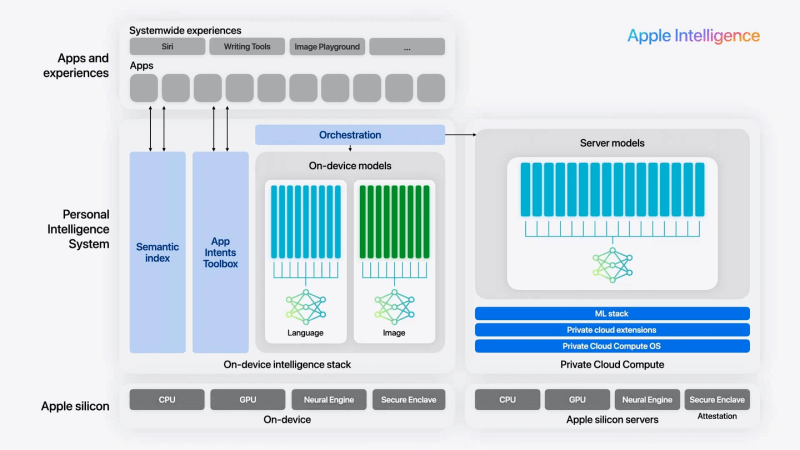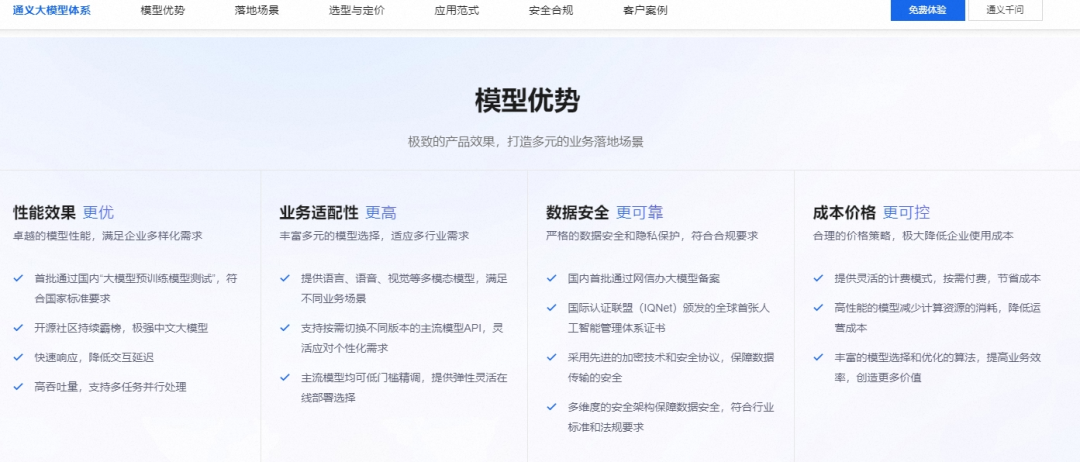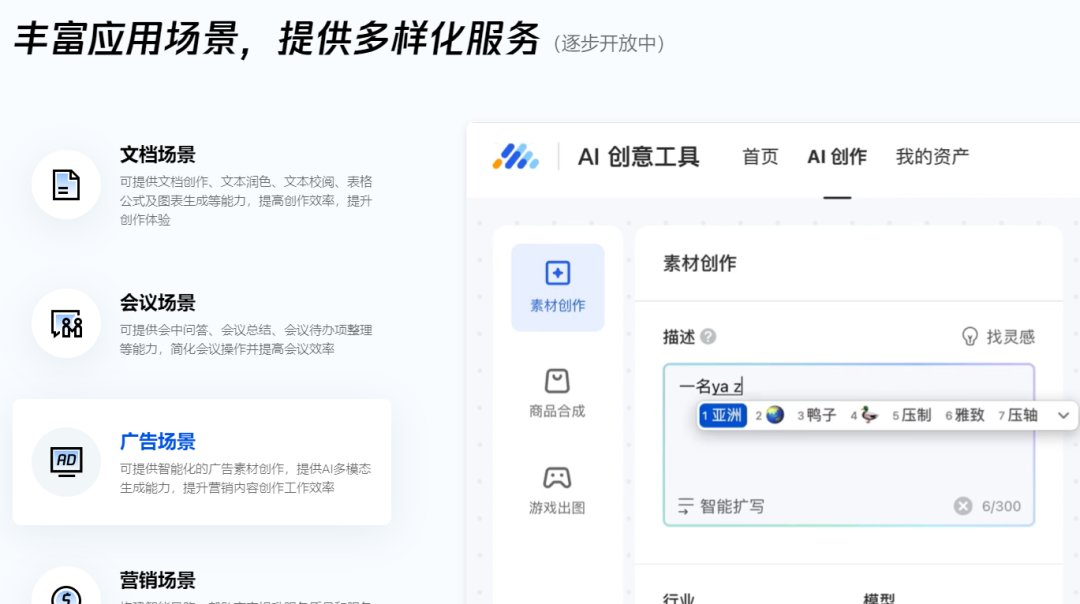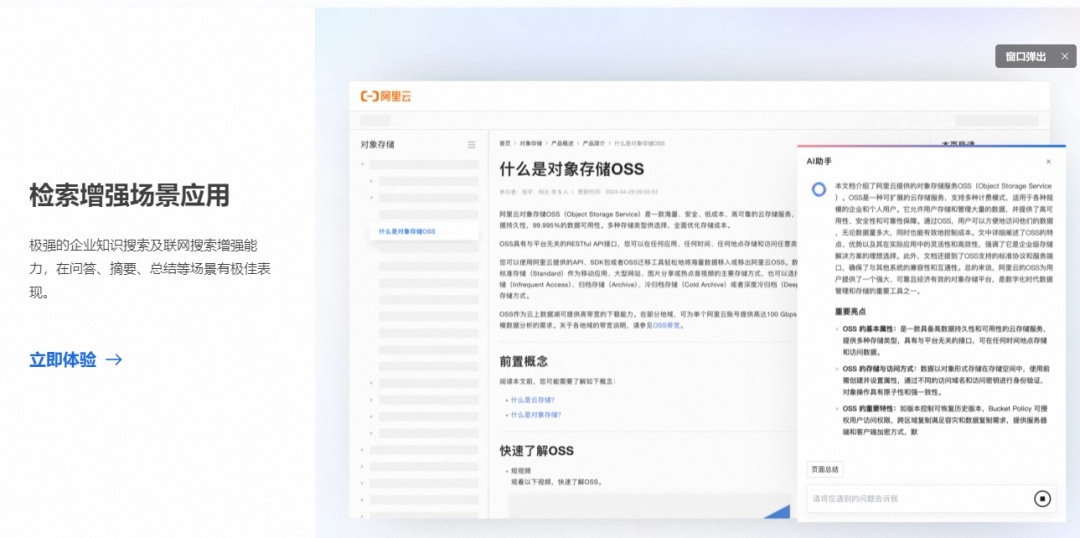Apple Ditches DeepSeek, Embraces Alibaba for AI Collaboration [Union]
![]() 02/19 2025
02/19 2025
![]() 490
490
Preface:
This collaboration transcends mere embellishment; it represents a mutual lifeline desperately needed by both parties.
On one hand, Apple's sales in the Chinese market have plummeted; on the other, Alibaba's core business has faced relentless erosion in recent years. Both entities urgently require a triumphant comeback.
Author | Fang Wensan
Image Source | Network

Apple strives to complete its generative AI ecosystem
Over the past two years, Apple's operating revenue in the Chinese market has consistently declined, with a notable 11% drop in the fourth quarter of the 2024 calendar year.
This decline primarily stems from Chinese consumers gradually shifting their loyalty to local mobile phone brands.
Apple's AI product, Apple Intelligence, was officially launched last June but has yet to be implemented in the Chinese market.
During the earnings call, Tim Cook, Apple's CEO, noted that iPhone sales in the fourth quarter of the previous fiscal year were significantly impacted by the fact that [Apple Intelligence has not yet been implemented].
The implementation of this partnership between Apple and Alibaba is anticipated to significantly accelerate the deployment of Apple's AI technology in the Chinese market, adding a crucial component to Apple's generative AI strategy.
On February 11, Apple selected Alibaba as its partner to develop AI features for iPhones in the Chinese market.
The capital market responded enthusiastically to this news on February 12, with Alibaba's Hong Kong stocks closing up 8.48%, pushing its market value beyond HK$2.2 trillion.
2025 is widely regarded as the inaugural year for the commercial application of large AI models. Early in the year, Alibaba announced a significant partnership to become Apple's AI development partner in China.
Apple's AI will deeply integrate various functions of Alibaba's Tongyi large model, enhancing capabilities such as photo search and text rewriting, thereby improving the user experience in photography, text processing, and other applications.
Furthermore, users will be able to invoke large models through the voice assistant Siri to execute a variety of commands.
Over the past year, several smartphone manufacturers, including Samsung and Xiaomi, have introduced AI-powered smartphones to enhance the user experience.
However, Apple's AI features have yet to be launched in the Chinese market, negatively impacting its performance there.

Alibaba's data and model prowess are pivotal to its outstanding performance
According to insiders, as a colossus in the e-commerce sector, Alibaba possesses abundant consumer data, enabling its AI to more accurately comprehend the requests of Chinese users based on personal data—a key reason why Apple chose it as a partner.
Apple also values Alibaba's data processing capabilities.
Apple's objective is to find a partner that can interpret Chinese users' requests based on personal data. As an e-commerce giant, Alibaba boasts extensive user shopping and payment data, an edge that other model vendors struggle to match.
In addition to its large model capabilities, Alibaba also excels in deploying AI infrastructure and computing power.
Furthermore, Qwen2.5Max outperformed international competitors like Claude-3.5-Sonnet in global rankings for mathematics and programming, demonstrating its strength in the [engineering capabilities] highly valued by Apple—the balance between model performance and deployment costs, crucial for consumer electronics giants like Apple to achieve commercialization.
Any enterprise offering generative AI services in the Chinese market must undergo government approval and registration processes.
To date, OpenAI has not obtained such approval, necessitating Apple to seek a Chinese partner to jointly serve Chinese consumers.

After thorough consideration, Apple abandoned DeepSeek and chose Alibaba
According to The Information, Apple initially selected Baidu as its primary partner, but during the development of the Apple Intelligence model, Baidu failed to meet Apple's standards, leading to obstacles in their collaboration.
Subsequently, Apple began extensively evaluating models developed by companies including Tencent, ByteDance, Alibaba, and the recently high-profile DeepSeek.
According to The Information, the primary reason Apple abandoned DeepSeek was that the team lacked the necessary human resources and experience to support a major customer like Apple.
Kuang Yuqing, the founder of Lens Consulting, analyzed that it was understandable for a company of Apple's size to not choose DeepSeek.
DeepSeek's current hardware capabilities are challenging to meet Apple's vast customer demand in the short term.
Apple cannot afford to wait indefinitely and must choose to collaborate with large platforms.
Currently, DeepSeek's computing resources and service capabilities cannot even meet the basic needs of C-end users. When ordinary users use its products, they often receive a [network busy] prompt after just one or two queries, clearly failing to meet Apple's stability requirements.
While open-source models and low-cost training technologies have quickly garnered significant attention for DeepSeek, for companies with a large user base like Apple, stability, diverse service capabilities, and data compliance are the factors they prioritize.
According to Caijing Magazine, insiders from Tencent revealed that Apple and Tencent discussed a potential collaboration in November 2024 but did not achieve concrete results.
The following month, Apple reiterated its intention to formally collaborate with Tencent.
However, according to the analysis of the aforementioned Tencent insiders, multiple factors may have contributed to the failure to reach a collaboration agreement between the two parties.
Tencent's large model technology performance is not unsatisfactory. In fact, Tencent has been consistently investing in AI technology research and development. Its R&D achievements extend beyond internal business applications like games and social platforms, and Tencent has open-sourced multiple large models.
According to The Information, two individuals directly involved in the project revealed that Baidu's progress in developing models for Apple Intelligence failed to meet Apple's standards, leading to the termination of their collaboration.
Although the specific progress standards have not been publicly disclosed, the termination of the collaboration indicates that Baidu fell short of Apple's expectations during the model development process for Apple Intelligence.
Currently, the AI features jointly developed by Apple and Alibaba Group have been submitted to regulatory agencies for approval.
According to Caijing, multiple industry insiders revealed that ByteDance's internal stance on whether to collaborate with Apple is unclear and tends to be cautious overall.
On one hand, collaboration may involve the so-called [Apple tax] issue;
On the other hand, ByteDance is facing regulatory pressure from the U.S. government and thus holds a conservative approach towards in-depth collaboration with American companies.

Conclusion: This collaboration undoubtedly holds profound significance for all parties involved.
For Apple, given the recent decline in sales performance in the Chinese market, this collaboration is viewed as a pivotal strategy to revitalize its presence there.
Since May 2024, competitors such as Huawei have introduced generative AI features in their high-end models, undoubtedly intensifying the competitive pressure on Apple in the Chinese market.
The AI features developed in collaboration with Alibaba will add unique competitive advantages to the iPhone product line in the Chinese market, helping Apple regain lost market share.
Simultaneously, with Alibaba's data and ecosystem advantages, Apple will gain a deeper understanding of Chinese consumers' needs, foster localized product innovation, and further solidify its position in the Chinese market.

For Alibaba, this collaboration is equally a significant opportunity.
The collaboration with Apple is a testament to Alibaba's technological prowess and opens up new avenues for the commercial application of its AI technology.
By partnering with an internationally renowned brand like Apple, Alibaba can enhance its influence in the global technology landscape, expand its business scope, and accelerate the application and promotion of AI technology in various fields.
This collaboration may also bring additional business opportunities to Alibaba in areas such as cloud computing and data services.
From the perspective of the entire industry and market, the collaboration between Apple and Alibaba will intensify competition in the AI market and propel rapid technological advancement.
Other technology companies may increase investments in the AI sector and launch more competitive products and services to counter the competition from Apple and Alibaba.
In summary, the collaboration between Apple and Alibaba is a strategic decision rooted in business logic and market demand, reflecting a comprehensive assessment of technological prowess, data resources, service capabilities, and other facets.
References:
China Entrepreneur Magazine: "Joe Tsai and Tim Cook, A Two-Way Endeavor", Cai Lian News AI Daily: "Joe Tsai: Why Did Apple Choose Alibaba?", All-Day Tech: "Apple Enters the Fray, Reassessing Alibaba", Reading First: "Why Did Apple Choose Alibaba, Not Tencent, ByteDance, or DeepSeek?", Business Show: "Alibaba's Move! Why Did Apple Abandon Baidu and DeepSeek?", Sohu Tech: "Apple AI Chooses Alibaba, Can It Beat Huawei with DeepSeek Integration?", Hei Ma Commune: "Between Baidu and DeepSeek, Apple Chose Alibaba", Caijing Magazine: "Why Did Apple Choose Alibaba, Not Tencent, ByteDance, or DeepSeek?"








